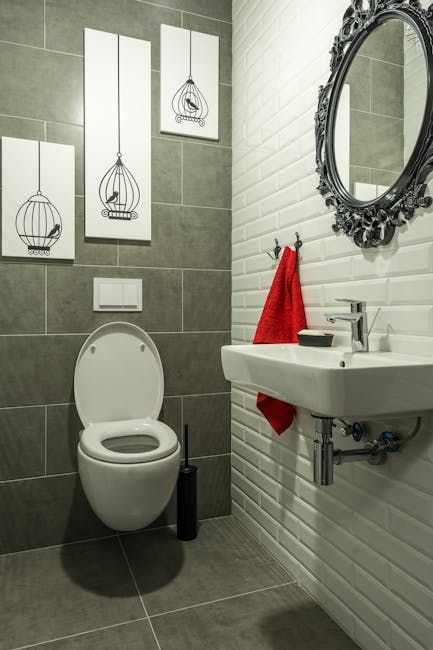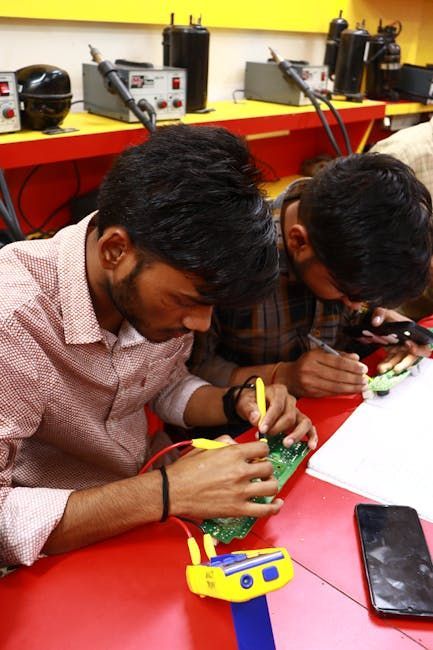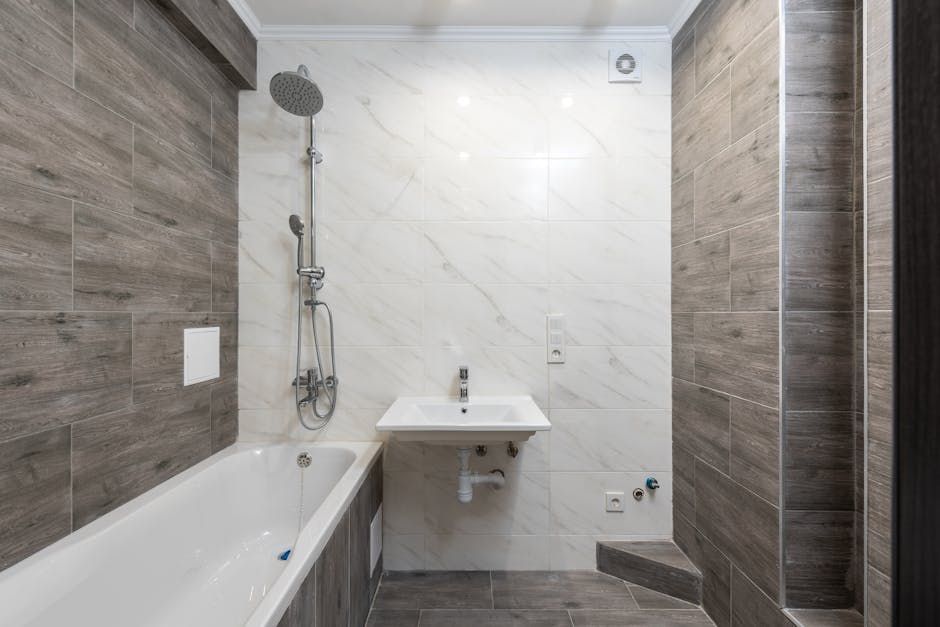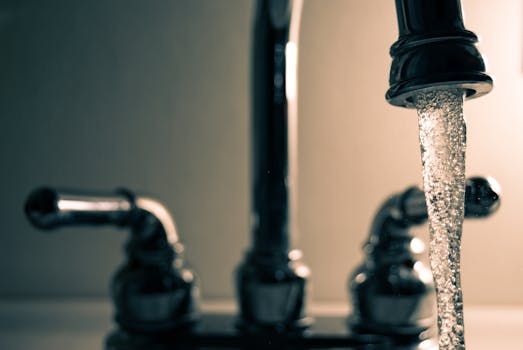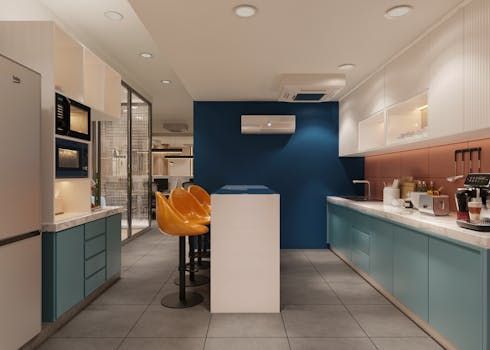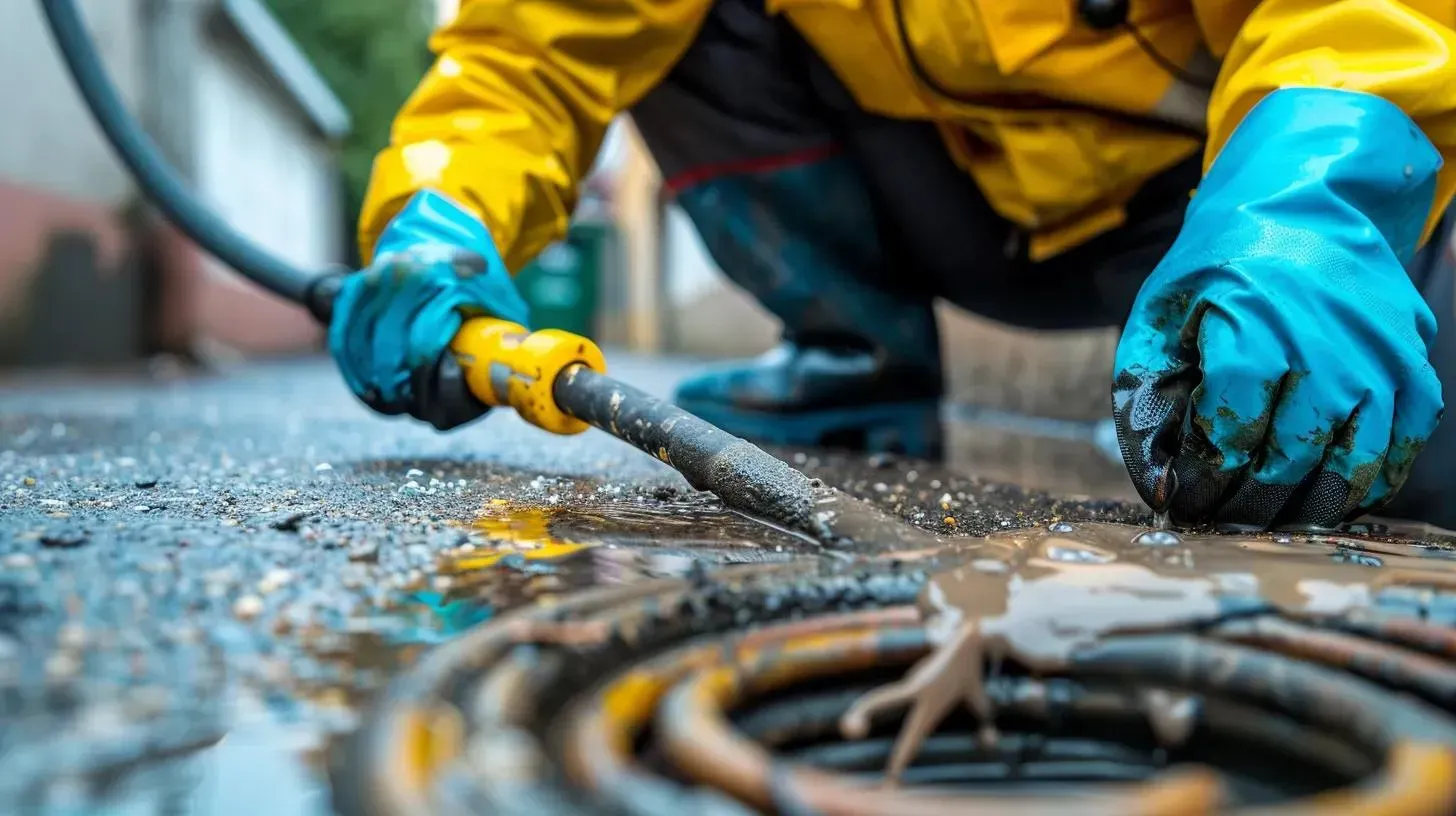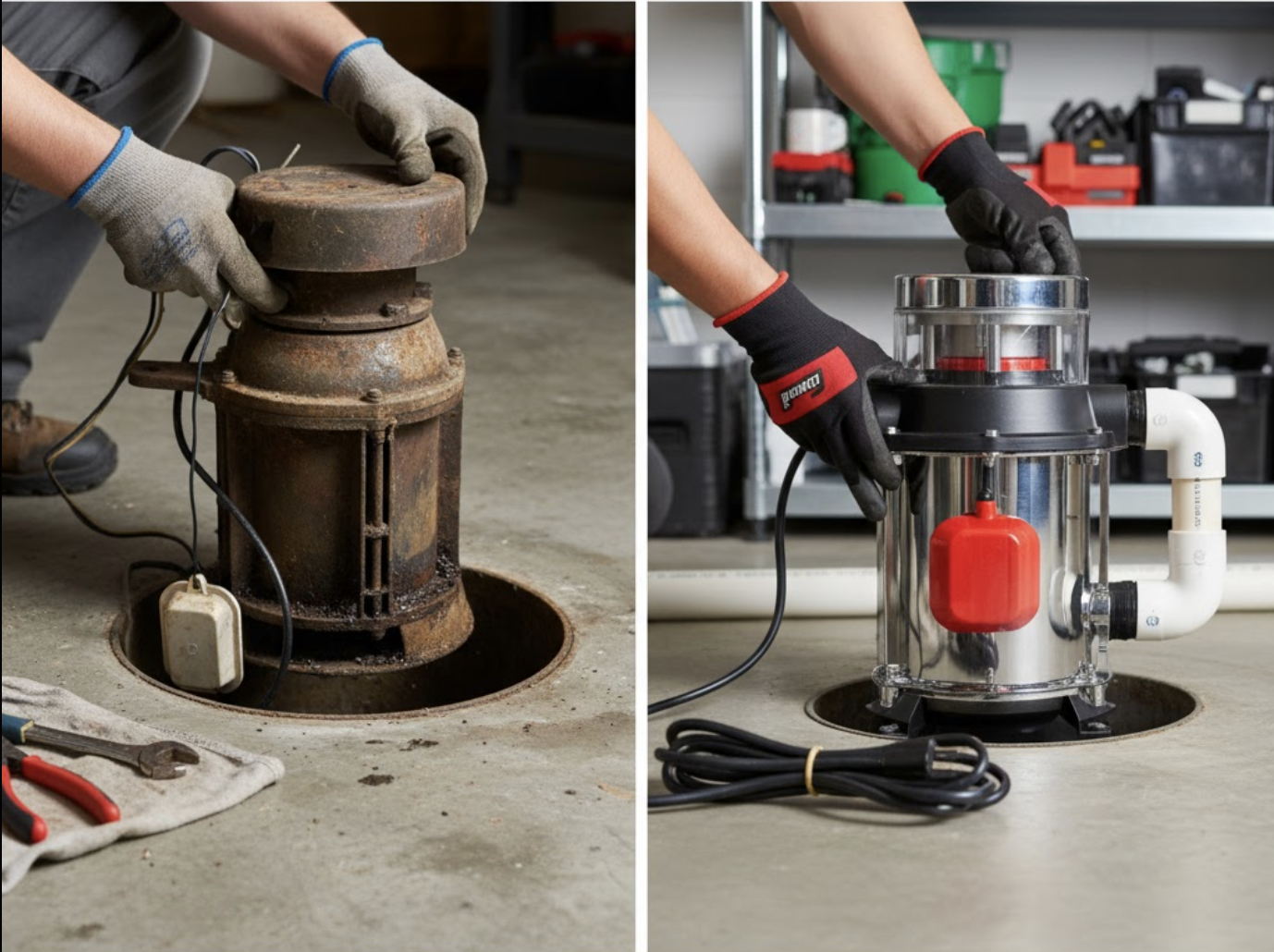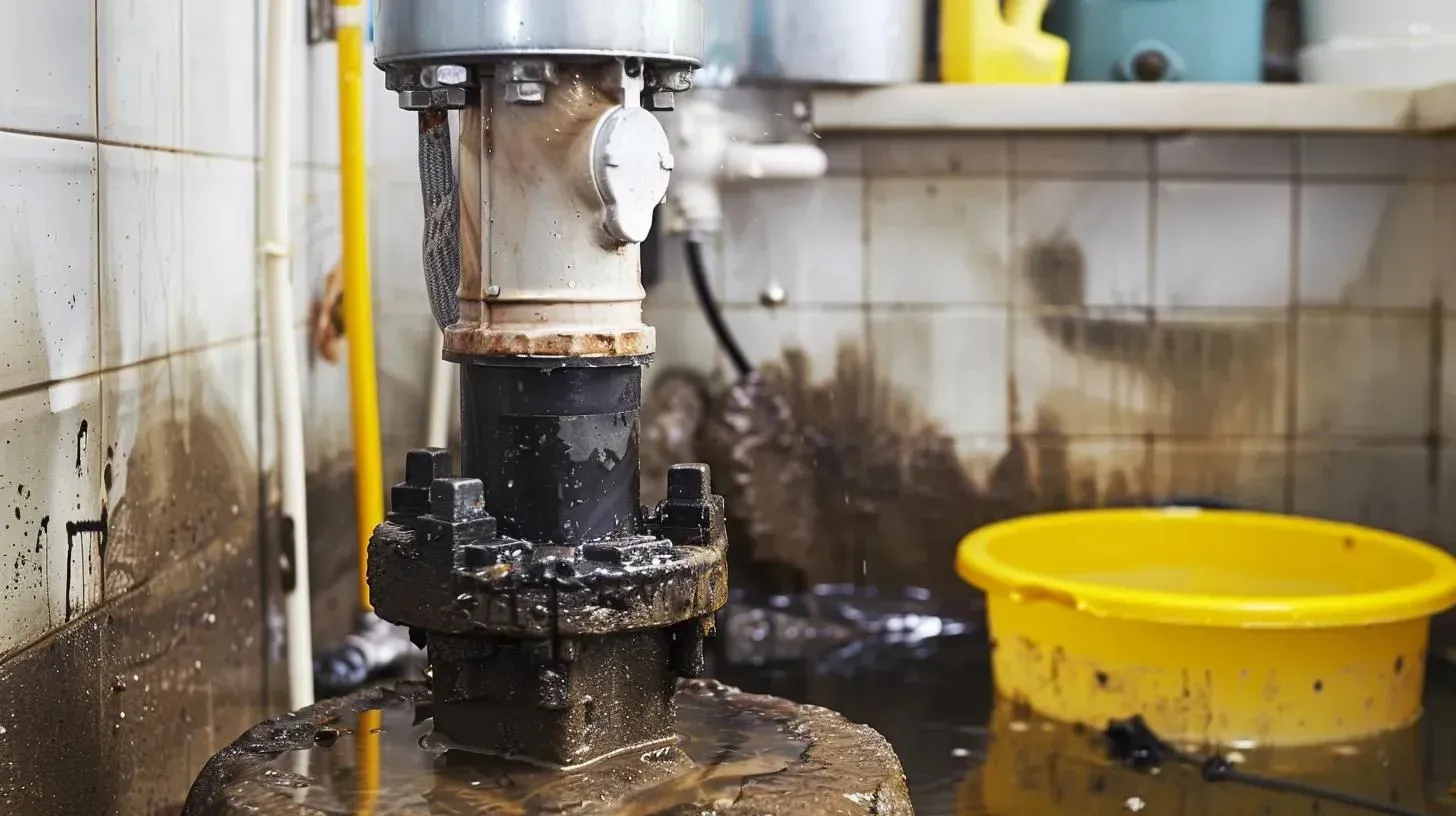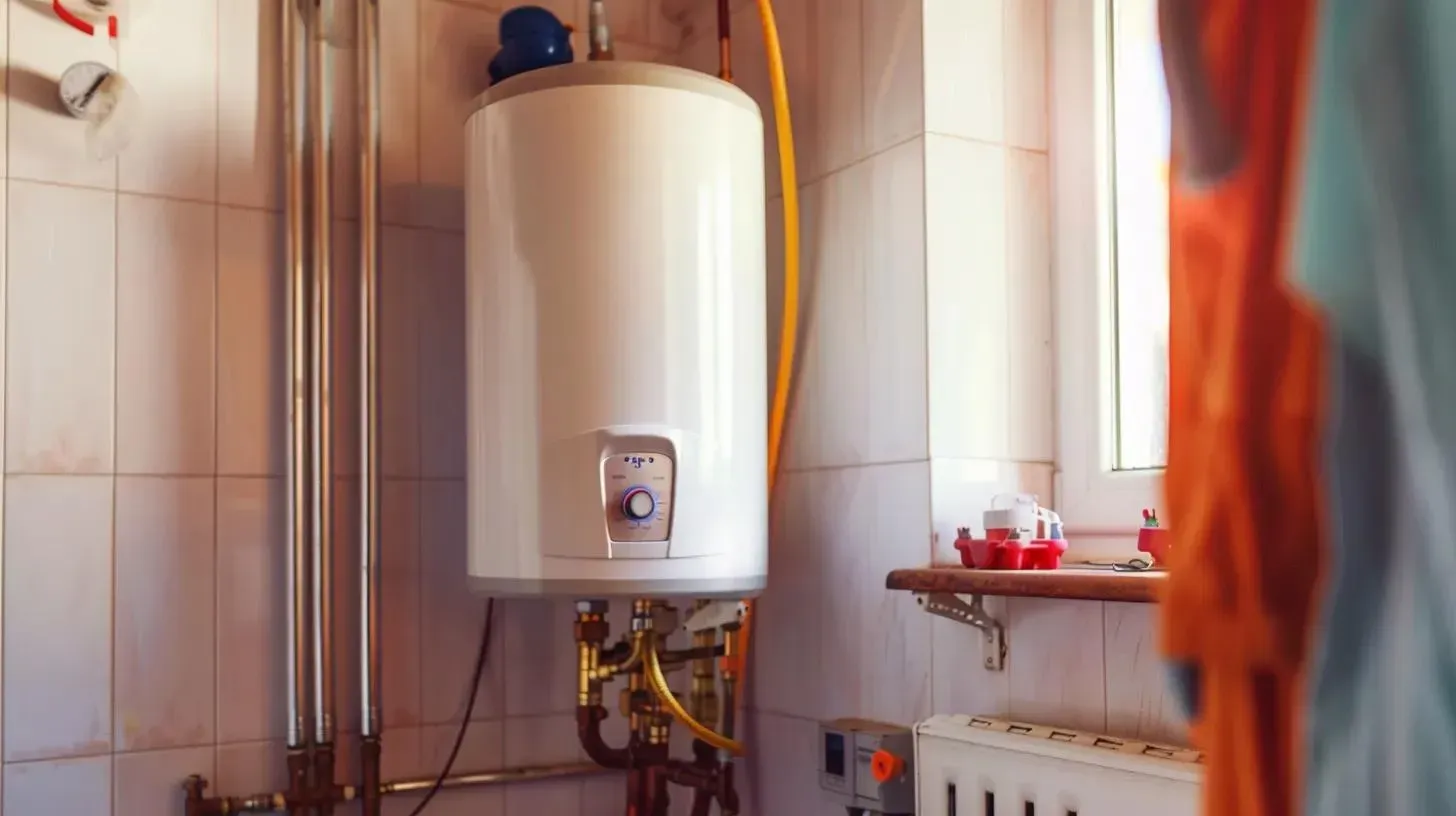Don't Get Drained – Master Plumbing Preventive Maintenance Today
The Ounce of Prevention Worth a Pound of Cure
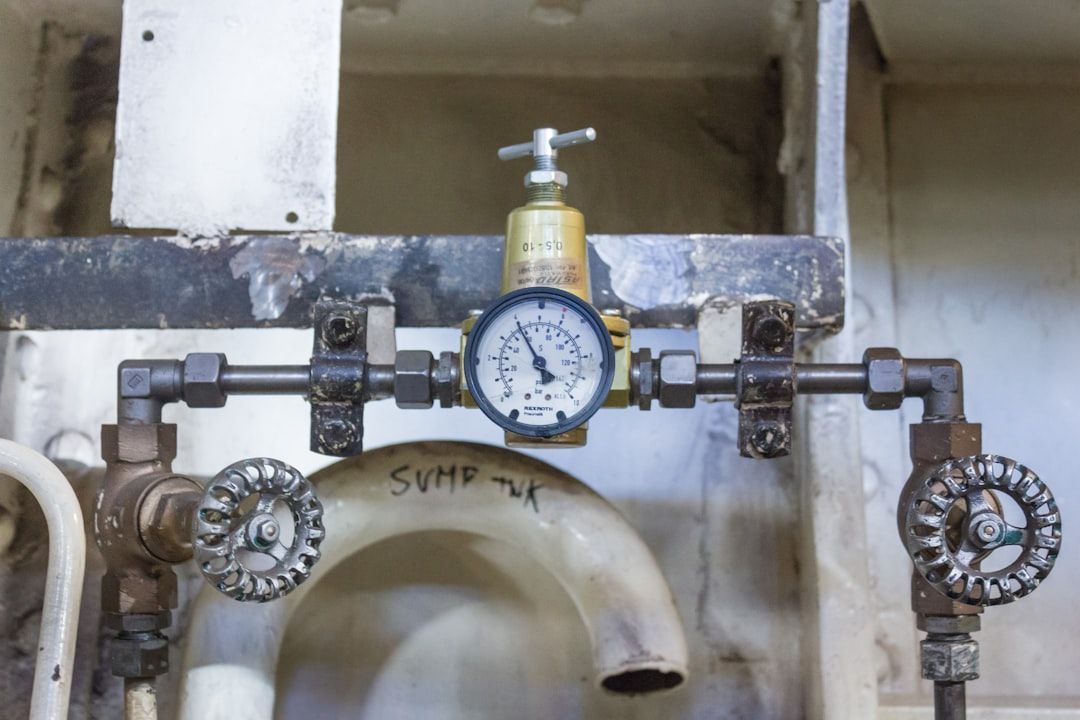
Plumbing preventive maintenance is a systematic approach to keeping your home's plumbing system running smoothly through regular inspections, cleaning, and minor repairs before problems become costly emergencies. Here's what every homeowner needs to know:
Essential Plumbing Preventive Maintenance Tasks:
- Daily: Check for visible leaks and listen for unusual sounds
- Weekly: Test water pressure and clean drain strainers
- Monthly: Inspect for corrosion, test toilets for leaks, check water heater pressure relief valve
- Annually: Flush water heater, inspect washing machine hoses, schedule professional inspection
When it comes to your home's plumbing, that old saying rings especially true. Most homeowners only think about their pipes when something goes wrong - usually at the worst possible moment.
Major plumbing repairs can cost thousands, and the Environmental Protection Agency reports the average family wastes 180 gallons of water weekly from household leaks alone. The good news is that most plumbing disasters are preventable.
Out of sight shouldn't mean out of mind. Your plumbing system works 24/7 behind your walls and under your floors. Small leaks can waste hundreds of gallons of water and cause thousands in property damage before you even notice them.
The solution is a simple maintenance routine that can save you from water damage, high utility bills, and emergency repair calls.
I'm Mike Martinez, owner of Accountable Home Plumbing. I've seen how proper
plumbing preventive maintenance saves Denver Metro homeowners thousands of dollars and countless headaches. Homes with regular maintenance rarely face the expensive emergencies that catch others off guard.
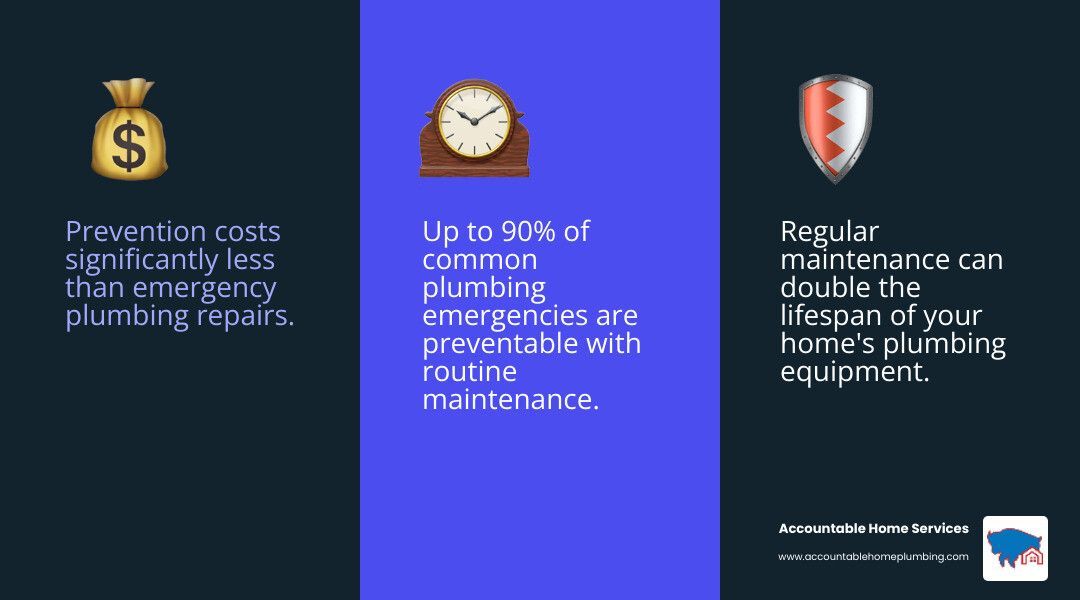
The "Why": Key Benefits of Regular Plumbing Maintenance
Think of plumbing preventive maintenance as health insurance for your home. Regular check-ups catch small problems before they become expensive disasters. The benefits go beyond avoiding a flooded basement; you're protecting your property value, ensuring your family's health and safety, and saving money.
Hidden leaks drive up water bills and can cause mold. Poor water pressure is frustrating, and unmaintained appliances like water heaters have a shorter lifespan. Regular maintenance also improves water quality, ensuring clean, safe water for your family.
The Financial Case for Plumbing Preventive Maintenance
The financial case for
plumbing preventive maintenance is clear. A
professional inspection costs around $287, while
emergency repair costs can start at $300-$400 for the service call alone, plus repairs.
The EPA notes the average family can waste 180 gallons per week from household leaks, which adds up on your water bill. Furthermore, insurance claims for water damage often don't cover fixing the neglected pipe itself—that bill is yours.
The math is simple: spending a few hundred on preventive care can save you thousands in emergency repairs and water waste. It's one of the smartest investments you can make in your home.
Protecting Your Property and Extending System Life
Your plumbing system is built to last, but only with proper care.
Pipe lifespan is 40-50 years and
fittings 20-30 years; maintenance helps them reach their full potential.
For example, an annual water heater flush removes sediment buildup, improving efficiency and lifespan. Skipping this can lead to early replacement. Corrosion is another silent enemy, eating through pipes and causing leaks and structural damage. Water in the wrong places rots wood, damages drywall, and promotes mold.
Catching these issues early prevents major headaches. A small leak fixed today saves you from tearing apart walls later. For more ways to keep your system in top shape, check out our Plumbing Tips.
Preventing structural damage protects your home's value and your family's comfort. A well-maintained plumbing system is an asset that keeps your home running smoothly.
Your Ultimate Plumbing Preventive Maintenance Checklist
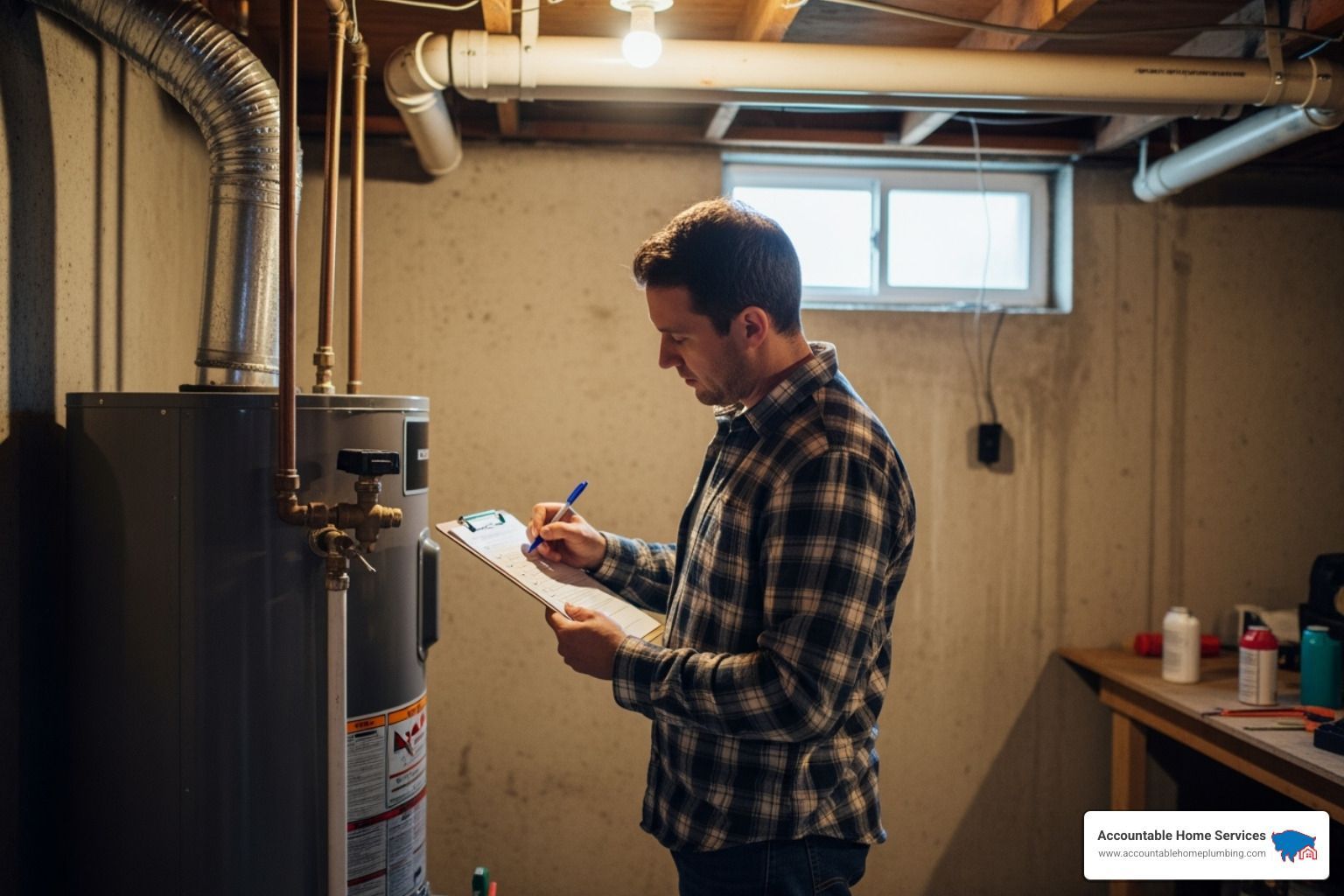
Think of this as your home's health checkup schedule. Consistent effort goes a long way in keeping your plumbing system healthy. The beauty of plumbing preventive maintenance is that most tasks are simple once you know what to look for.
Daily & Weekly Tasks: The Quick Check-Up
These quick tasks become second nature, like brushing your teeth, preventing bigger problems down the road.
Checking for leaks should be automatic. Take a quick peek under kitchen and bathroom sinks, around toilets, and along visible pipes. Look for puddles, dampness, water stains, or a musty smell. A small drip can waste up to 20 gallons of water daily.
Listen to your home. Gurgling from drains or toilets can mean a venting issue or a clog. A banging noise when you turn off water is called "water hammer," and it signals pipe stress from sudden pressure changes.
Sniff for unusual odors. Musty smells can signal hidden leaks and mold. Sewer gas odors may mean a dry drain trap; run water in unused drains for 30 seconds to refill it.
Testing water pressure weekly takes just a minute. Use a pressure gauge on an outdoor faucet and aim for 40-60 PSI. Pressure above 80 PSI stresses your system. Inconsistent water pressure can signal deeper issues.
Don't forget to clean drain strainers regularly. A quick rinse prevents most drain clogs from ever starting.
Monthly Tasks: A Deeper Dive
Once a month, look deeper into your system's health to catch issues before they become expensive surprises.
If you have a sump pump, test it monthly by pouring a bucket of water into the pit. The pump should kick on and discharge the water. Also check the discharge line for blockages. Our Sump Pump Maintenance guide covers this in detail.
Clean faucet aerators and showerheads, especially in areas with mineral-rich water. If water flow is weak, unscrew them and soak them in vinegar overnight to remove mineral buildup.
Inspect for corrosion on exposed pipes, especially under sinks and near the water heater. Look for green, white, or blue discoloration, which are early warning signs of pipe decay.
Check toilets for silent leaks with food coloring. Add a few drops to the tank and wait 20-30 minutes without flushing. If color appears in the bowl, you have a leak that can waste hundreds of gallons daily.
Test your water heater's pressure relief valve annually by gently lifting its lever to ensure it releases water and closes properly. For more details, see our Routine Water Heater Maintenance guide.
Annual Tasks: The Full System Physical
These annual tasks are your plumbing's yearly physical. Some are DIY, but others require a professional.
Annual tasks that deserve your attention:
- Flush your water heater to remove sediment buildup that reduces efficiency and creates noise
- Inspect washing machine hoses for bulging, cracks, or signs of wear - replace rubber hoses every 5 years or upgrade to braided stainless steel
- Test all shut-off valves including your main water shut-off (make sure everyone in your household knows where this is!)
- Clean gutters and downspouts to prevent water from backing up toward your foundation
- Winterize outdoor faucets before Denver's first hard freeze by shutting off water supply and draining lines
- Schedule a professional inspection to catch issues only trained eyes can spot
The professional inspection is where the real value lies. A pro can assess main sewer lines and spot subtle signs of system stress. Our
Annual Plumbing Maintenance service covers all the bases, ensuring your system operates at peak efficiency.
Plumbing preventive maintenance is about awareness and catching small issues before they become big headaches. Your future self will thank you when you're enjoying consistent hot showers instead of dealing with emergency repair bills.
DIY vs. The Pros: Knowing When to Call for Backup
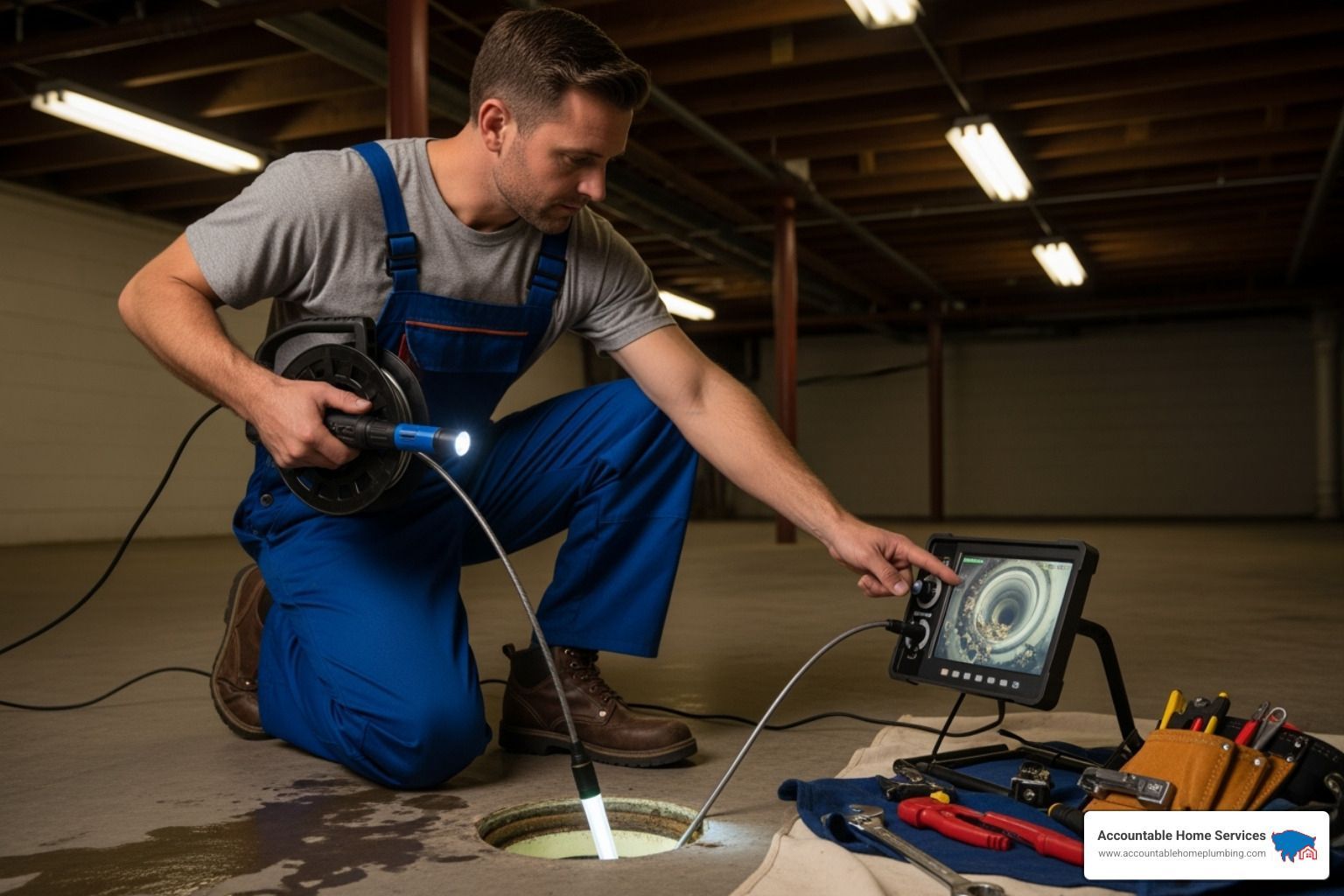
With plumbing preventive maintenance, you don't need to be a pro, but you do need to know your limits. Many well-intentioned homeowners turn a simple fix into a major disaster. The key is knowing which tasks are DIY-friendly and which require a professional. There's no shame in calling for backup; your wallet and peace of mind will thank you.
DIY Plumbing Preventive Maintenance: What You Can Handle
Most homeowners can handle routine maintenance tasks that don't require special tools or experience, just patience and common sense.
Cleaning drains is a great DIY task. For slow drains, try pouring hot water down, followed by a cup of baking soda and a cup of white vinegar. Let it sit for 30 minutes, then flush with more hot water. It's gentle on pipes and effective for minor clogs.
Inspecting for visible leaks is as simple as looking under sinks and around toilets weekly with a flashlight.
Replacing toilet flappers is one of the easiest repairs. If your toilet keeps running, the rubber flapper in the tank has likely deteriorated. Turn off the water, flush to empty the tank, and swap it for a new one.
Cleaning aerators can instantly improve water pressure. Unscrew the screen at the end of your faucet, soak it in vinegar overnight, and screw it back on.
Using drain strainers is pure prevention. These mesh screens catch hair and debris. Clean them regularly to avoid most clogs. For more guidance, see our Routine Drain Maintenance tips.
Red Flags: When to Call a Professional Immediately
Now for the red flags where DIY enthusiasm can cause real trouble. It's time to put down the wrench and pick up the phone.
Persistent low water pressure throughout your home is often a sign of something serious, like corroded pipes, hidden leaks, or main water line issues that require professional diagnosis.
Sewer odors in your home should never be ignored. This health hazard could signal a cracked sewer line or broken vent pipe, which requires immediate professional attention.
Major leaks or burst pipes are obvious emergencies. Don't try temporary fixes. Turn off your main water supply immediately and call us. A proper repair is the only way to prevent fast-spreading water damage.
No hot water can be a complex issue involving gas or high-voltage electricity. If you get cold showers or notice rust-colored water or strange noises from the tank, it's time for professional help.
Signs of water damage on walls or ceilings (stains, warping) mean a hidden leak has likely been active for a while, potentially causing mold and structural damage. This requires professional leak detection.
Frozen pipes are a special case in the Denver Metro area. If your pipes are already frozen, don't try to thaw them yourself with heat sources. They can burst without warning. Call us immediately to safely thaw them and check for damage.
For any of these serious situations, our team at Accountable Home Plumbing is available 24/7. We offer comprehensive Residential Plumbing Services throughout the Denver Metro area with upfront pricing.
Knowing when to call for backup isn't admitting defeat - it's being smart about protecting your home.
Level Up Your Maintenance: Advanced Concepts and Tools
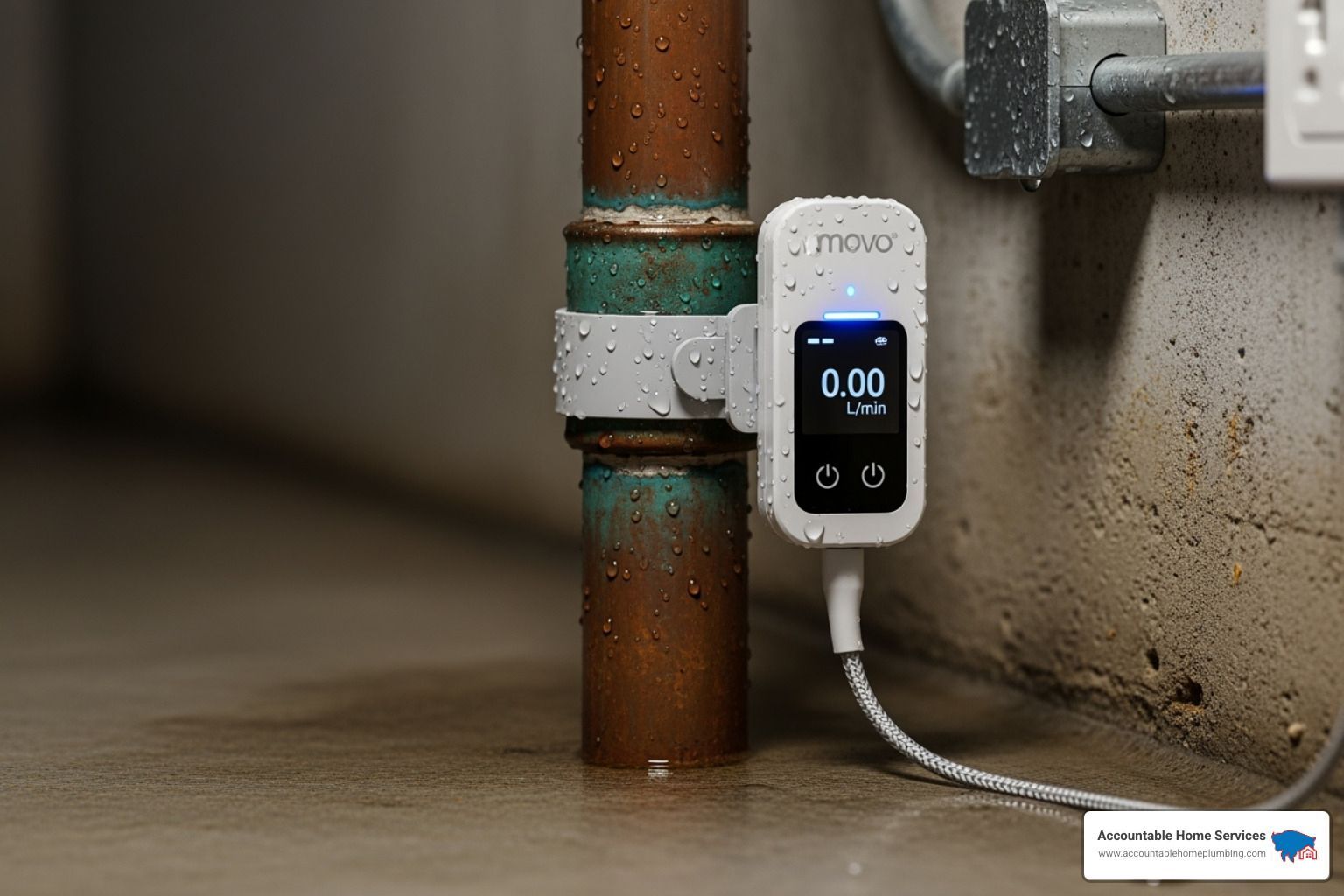
Ready to take your plumbing preventive maintenance game to the next level? Technology and smart strategies can transform your maintenance routine from reactive to truly proactive. Think of it as giving your plumbing system a complete health monitoring system that works around the clock.
Preventive Maintenance for Homeowners
The difference between basic maintenance and advanced plumbing preventive maintenance comes down to being strategic rather than just checking boxes. It's about understanding your home's unique plumbing personality and staying one step ahead of potential problems.
Scheduled tasks form the backbone of any serious maintenance plan. But here's the thing - consistency beats perfection every time. It's better to stick to a simple routine religiously than to attempt an elaborate system you'll abandon after a month. Your plumbing system thrives on predictable care.
Monitoring for early warning signs becomes second nature once you know what to listen and look for. That slight change in your shower's water pressure? The toilet that's started making a different sound when it refills? These subtle shifts are your plumbing system's way of whispering before it starts screaming. Pay attention to these early conversations.
Using available technology to catch issues early is where modern homeowners have a real advantage. Smart leak detectors, water pressure monitors, and even simple smartphone apps can turn you into a plumbing detective. The goal isn't to replace professional expertise but to catch problems in their infancy when they're still manageable.
For larger homes or those with complex systems, more frequent professional inspections make perfect sense. Think of it as preventive medicine for your house - some homes just need more attention to stay healthy, and that's completely normal.
Tools and Water-Saving Upgrades
The right tools can make your
plumbing preventive maintenance efforts both more effective and more enjoyable. You don't need a truck full of professional equipment, but a few smart investments can pay dividends.
A water pressure gauge is probably the most useful $15 you'll ever spend on your home. This simple device screws onto any outdoor hose connection and gives you instant feedback on your system's health. Water pressure that's consistently above 80 PSI is like having high blood pressure - it stresses everything and leads to premature failures.
Smart leak detectors are game-changers for busy homeowners. These little hockey puck-sized devices sit quietly under your sink or near your water heater, sending alerts to your phone the moment they detect moisture. Some insurance companies even offer discounts for installing them because they prevent so much water damage.
When professionals use video inspection cameras for drain cleaning and assessment, it's like getting an MRI for your pipes. While you probably won't buy one yourself, understanding that this technology exists helps you make informed decisions about Drain Cleaning services and pipe assessments.
Upgrading to low-flow toilets and low-flow faucets isn't just about being environmentally conscious - it's about reducing the daily stress on your plumbing system. Modern WaterSense-labeled fixtures use significantly less water while maintaining performance, which means less wear and tear on your pipes and lower utility bills.
Creating a water system mapping document might sound overly detailed, but trust me on this one. A simple sketch showing where your main shutoffs are, the location of your water heater, and any unique features of your system becomes invaluable during emergencies. When water is spraying everywhere, you don't want to be playing hide-and-seek with your shutoff valves.
The beauty of advanced plumbing preventive maintenance is that it transforms you from someone who reacts to plumbing problems into someone who prevents them. And honestly? That peace of mind is worth every minute invested.
Frequently Asked Questions about Plumbing Maintenance
Over my years serving Denver Metro homeowners, I've heard just about every plumbing question you can imagine. Here are the ones that come up most often, along with the honest answers I give my customers.
How often should I get a professional plumbing inspection?
Most experts recommend an inspection every one to two years. For older homes or if you've had recent issues, an annual inspection is ideal. A professional can spot hidden issues you might miss.
Here's what I tell my customers: if your home is newer and you haven't had any major plumbing issues, every two years is probably fine. But if you're living in one of those charming older Denver homes with original plumbing, or if you've been dealing with recurring problems, I'd recommend yearly inspections.
The truth is, we can catch things you simply can't see - like subtle leaks behind walls, early signs of pipe corrosion, or problems developing in your main sewer line. It's much easier (and cheaper) to fix a small issue we find during a routine inspection than to deal with a burst pipe at 2 AM on a Sunday.
Think of it like going to the doctor for a checkup. You might feel fine, but that annual visit can catch problems before they become serious health issues.
What is the ideal water pressure for my home?
Ideal residential water pressure is between 40 and 60 PSI. Pressure consistently above 80 PSI can cause stress on your pipes and fixtures, leading to leaks and premature failure. A simple pressure gauge can test this.
Water pressure that's too high is actually more dangerous than pressure that's too low. When your pressure consistently runs above 80 PSI, it's like having your plumbing system constantly under stress. Imagine holding your breath all the time - eventually, something's going to give.
On the flip side, pressure below 40 PSI makes everything frustratingly slow. You'll notice it most in the shower or when trying to fill up the bathtub.
The good news? You can easily test your home's pressure yourself with an inexpensive gauge that screws right onto your outdoor hose connection. If your pressure is running too high, we can install a pressure regulator to protect your entire system.
Can I use chemical drain cleaners for routine maintenance?
It is not recommended. Harsh chemical cleaners can corrode your pipes over time, causing more harm than good. For routine maintenance, use natural methods like hot water with vinegar and baking soda, and for tough clogs, it's safer to call a professional for Drain Cleaning.
I know those bottles of drain cleaner at the hardware store look tempting - they promise quick fixes and dramatic results. But here's the reality: those harsh chemicals are essentially eating away at your pipes every time you use them.
What starts as a $5 quick fix can turn into hundreds or thousands of dollars in pipe replacement costs down the road. The acids and caustics in those cleaners don't just dissolve hair and grease - they also corrode metal pipes and can damage your septic system if you have one.
For regular plumbing preventive maintenance, stick with natural methods. Hot water mixed with vinegar and baking soda works great for breaking down soap scum and grease buildup. It's gentler on your pipes and safer for your family.
When you've got a stubborn clog that won't budge, give us a call. We use specialized tools like drain snakes and hydro-jetting to clear blockages without damaging your plumbing system. It might cost a bit more upfront, but it'll save you money in the long run.
Conclusion: Take Control of Your Home's Plumbing Health
You don't need to become a master plumber to protect your biggest investment. Plumbing preventive maintenance is really about developing good habits and staying one step ahead of problems before they find you at 2 AM on a Sunday.
Think about it this way: those few minutes you spend each week checking for leaks, listening for strange sounds, and keeping an eye on your water pressure can save you thousands of dollars and countless headaches down the road. It's like brushing your teeth - a small daily effort that prevents much bigger problems later.
The beauty of proactive care lies in its simplicity. You're not just avoiding disasters; you're actively extending the life of every pipe, fixture, and appliance in your home. Your future self will thank you when your neighbors are dealing with burst pipes and you're enjoying consistent hot water and perfect water pressure.
But here's the thing - even the most diligent homeowner needs backup. System longevity depends on catching those hidden issues that only trained eyes can spot. That's where professional partnerships make all the difference.
For Denver Metro area residents in Broomfield, Westminster, Thornton, Northglenn, Arvada, Boulder, and Longmont, you deserve a plumbing partner who respects your time and budget. At Accountable Home Services, we believe in upfront pricing with no hidden fees - because surprises belong at birthday parties, not on service bills.
Whether you need your annual inspection or face an unexpected emergency at 3 AM, we're here 24/7 to keep your plumbing running smoothly.
Ready to protect your home? Don't wait for that small drip to become a major flood. Schedule your
plumbing maintenance service today and take control of your home's plumbing health.

